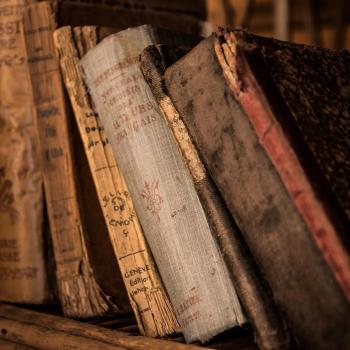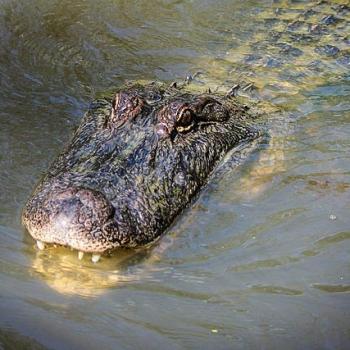The bus was crowded; my daughter and I sat in the back, wedged awkwardly near a three-way conversation between three loud-voiced and extremely profane young men. Two were black, one was white.
“I don’t vote,” said the white man. “They all f***in’ corrupt. I don’t see no difference.”
“But man, that Trump,” said the black man. “Other politicians talk and I don’t believe him. Him, he wants to get sh*t done. He says stuff, I believe it. He gonna f***in’ take everyone who doesn’t work off of food stamps.”
“But you already gotta work to get food stamps,” broke in the other black man.
“But he,” said the excited black man. “He said he want to bring back f***in’ Stop and Frisk. She said it wasn’t effective, but he said yeah, it was. You know what Stop and Frisk is? Stop and Frisk, the cops, they can pull you over, and they can F***in’—” he slapped himself mercilessly on the leg and side, to demonstrate a frisking.
They went on, in even more florid language, loudly repeating grotesque slang about walking into locker rooms and grabbing women by the genitals. I reached over and held my daughter’s hand. She knows not to repeat language she hears on the bus, but it doesn’t mean she doesn’t hear. It doesn’t mean she can’t understand what they’re alluding to, and what the new president has said he likes to do to women.
“I’m just scared,” said the white man at one point in the conversation. “Cause I heard he was endorsed by the leader of the KKK. You know, I read that. And you know, I’m safe, but my wife, she’s black, and my kids, they’re mixed race. And I don’t want him f***in’ comin’ after them.”
“Oh yeah,” said the excited black man with a weird smile. “He won’t like that.”
The black man who had said the least leaned back on his bench. “You know? I’m just gonna lie here, go with the flow, and see what happens.”
Many are always afraid, here in the valley. This is what it’s like to live on the cusp of Northern Appalachia, where the steel mills used to be. This is what it’s like even at the best of times. I’ve seen it in my neighbors, and I’ve lived it a bit myself. You live on a knife edge, the powers that be are always against you, and you’re afraid. You’re always afraid. You don’t know if your car will be repossessed, if you even have one to begin with; you don’t know if you’ll have to go into debt with the payday loan sharks and never get out again. You don’t know if you’ll get evicted, or your house will become so dilapidated you’ll have to move, and you don’t know where you’ll go. You don’t know if the cops are coming for you. You don’t know if you’ll be homeless. You don’t know. I myself have been very lucky, but some days I still don’t know.
And you stay here, because you have nowhere else to go. You’re poor long enough, your car is gone, your credit’s ruined, all you can do is stay. And you are afraid. And we’re more afraid now.
Sometimes people break free—I hear about it on the bus now and then. So-and-so’s grandson went to Columbus and got a full-time job. So-and-so’s daughter moved to Pittsburgh, she’s making fourteen dollars an hour.
I came in the opposite direction. I fled from Columbus to escape a toxic and abusive living situation. Now I don’t have a way of getting back out.
I don’t believe in Limbo as a spiritual place, the way Heaven, Hell and Purgatory are. But Limbo exists, on earth. Limbo is a brown, polluted river spanned by black iron bridges. Limbo is the valley on either side, going up to the mountains in the chimney of West Virginia and the foothills in Eastern Ohio. We are afraid, here.
We are more afraid now.
(Image via Wikimedia Commons.)













